spying
Latest

'Whisper' laser tech sends audible messages to specific people
Researchers from MIT have discovered a way to send highly targeted audio signals directly to someone's ear at a distance using laser beams. The system works using the "photoacoustic" effect, where water vapor in the air absorbs light, forming sound waves. The research may pave the way to systems that allow audible messages to be transmitted to spies or other agents, warning them of impending danger like an active shooter.

Audit backs Apple's denial of Chinese spy chips in servers
If there have been any Chinese spy chips on Super Micro servers, they haven't been easy to find. The company has told customers that an independent audit has found no evidence of malicious hardware on its current motherboards as well as those from the generation sold to Amazon and Apple (and thus the heart of the Bloomberg claims that sparked the concern). There was also no evidence of unapproved designs or rogue software, the auditors said.

Saudi Arabia reportedly asked Twitter employee to spy on dissidents
Saudi Arabia may have done more than use large-scale social media campaigns to stifle political opposition. New York Times sources claim the country was "grooming" a Twitter engineer, Ali Alzabarah, to snoop on the accounts of dissidents and other targets. Western officials reportedly warned Twitter in late 2015 that Alzabarah had not only grown close to Saudi intelligence agents, but had agreed to spy on multiple user accounts. The social network suspended him and conducted an investigation that turned up no evidence of handing data to the Saudis, but they fired him all the same in December the same year.

Senators demand answers over Chinese 'spy chip' fears (updated)
Apple may have tried to reassure Congress that there's no evidence of China tampering with servers to spy on data traffic, but it didn't do much to quell doubts. Senators Richard Blumenthal and Marco Rubio have sent a letter to Super Micro demanding answers around allegations of Chinese spy chips. The duo wants to know if Super Micro has monitored and investigated its supply chain for signs of tampering, and is particularly interested in February 2017 statements to The Information that it had independent auditors look over its "process" and make changes following Apple's claims of security holes. If Super Micro conducted an investigation, the senators asked, what were the results?
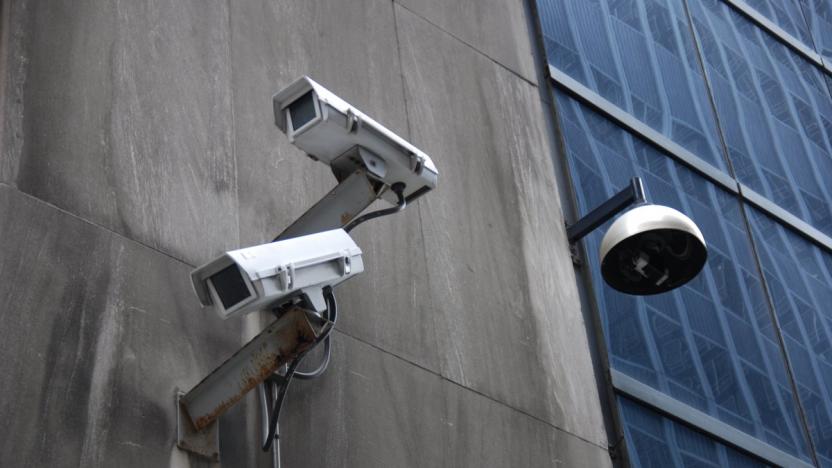
European Court rules UK surveillance program violated human rights
The European Court of Human Rights (ECHR) is the latest to deem the UK government's mass surveillance program unlawful. Judges ruled the "bulk interception regime" violated the right to privacy and freedom of expression. It said there was "insufficient oversight" over what communications UK agencies were collecting and also noted that there were "inadequate" safeguards for the protection of confidential journalistic sources.
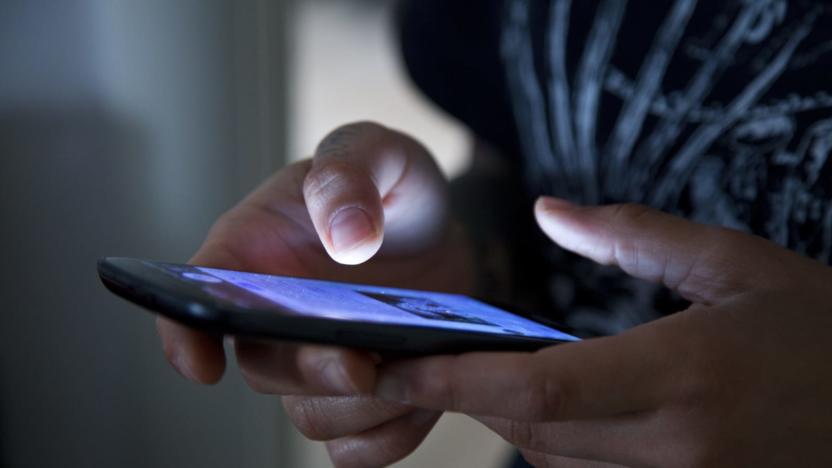
US, UK and others push for mandatory access to encrypted data
Western intelligence allies are presenting a united front in their fight against encryption. The "Five Eyes" countries (US, UK, Australia, Canada and New Zealand) have issued a Statement of Principles indicating that they will push for "lawful access" to private data as often as possible. While the governments acknowledged that encryption was valuable, they argued that encrypted data use "should be rare." They hoped companies would voluntarily offer legal solutions, but vowed "technological, enforcement, legislative or other measures" to force access if the tech industry didn't cooperate.
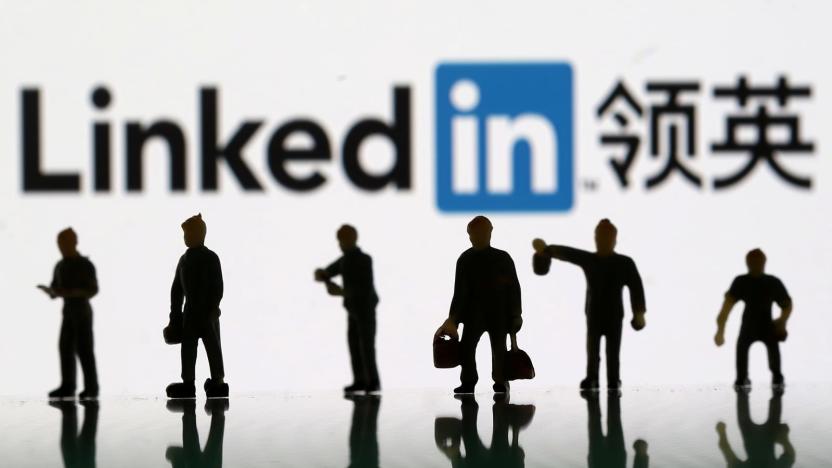
US says China is aggressively recruiting spies on LinkedIn
Forget trying to recruit spies in clandestine meetings -- apparently, you just have to go to a job website. US National Counterintelligence and Security Center chief William Evanina told Reuters that Chinese intelligence agencies were conducting a "super aggressive" spy recruiting campaign through LinkedIn. China has reportedly been using fake accounts to flood government and business workers with recruiting messages in hopes they'll divulge secrets. Germany and the UK have warned about similar practices before, but this is the first time the US government has talked about the problem in earnest.

Court rules accessing smart meter data constitutes a government search
Smart meters are designed to reduce energy consumption, lower household bills and, by extension, help the planet along a little bit. But could they also be used by the government to spy on you? This is the question that was thrown into the spotlight this week when the Seventh Circuit handed down a landmark opinion ruling, stating that data collected by smart meters is protected by the Fourth Amendment.

Auctioning a Russian spy camera disguised as... a camera
Spycraft in the Cold War was a lot different than it is now. Rather than hacking computers or trying to fix elections on social media, spooks dug up secrets using cool gadgets. Aston's Auctioneers in the UK just sold off a very interesting batch of 25 rare USSR-era cameras. The most interesting of those may be a miniature spy camera designed to look like a much less conspicuous Soviet-made KMZ Zenit-E SLR.

NSA deletes hundreds of millions of call records over privacy violations
The NSA unfortunately has a long history of violating privacy rules, although this time the agency might not be entirely to blame. The NSA is deleting hundreds of millions of call and text message data records (collected since 2015) after learning of "technical irregularities" that led to receiving records it wasn't supposed to obtain under the USA Freedom Act. General counsel Glenn Gerstell told the New York Times in an interview that "one or more" unnamed telecoms had responded to data requests for targets by sending logs that included not just the relevant data, but records for people who hadn't been in contact with the targets. As it was "infeasible" to comb through all the data and find just the authorized data, the NSA decided to wipe everything.

Facebook patent turns phone mics on to record reactions to ads
Facebook has repeatedly denied tapping into phones microphones for targeted advertising, but just because it isn't doesn't mean it can't. According to Metro, Facebook has applied for a controversial patent for software that will allow smartphones to begin recording when they hear secret messages hidden in TV ads.

Spanish soccer league app spied on fans to catch pirate broadcasts
Is your phone listening to you? After all, there has to be a reason why so many apps ask to access your device's microphone. App makers and websites have long dismissed creepily relevant adverts as merely "targeted advertising", but now one app has revealed the unnerving potential of this permission. Spanish soccer league app, La Liga, has admitted to spying on users, and in doing so it's turning sports fans into unknowing snitches.
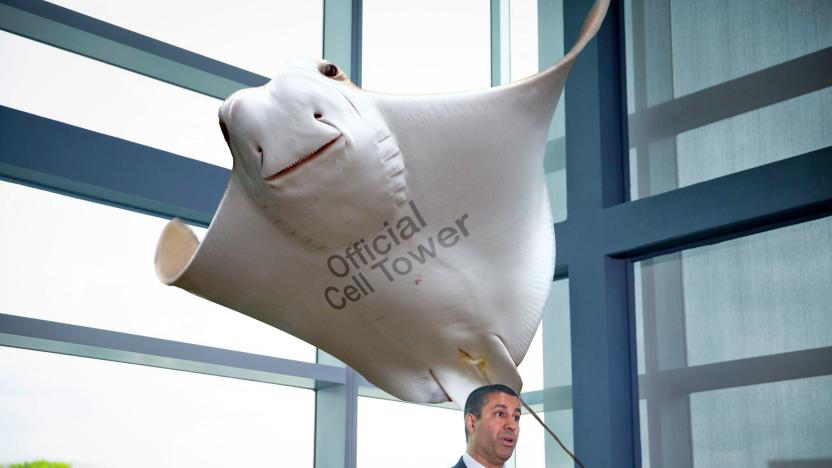
FCC shrugs at fake cell towers around the White House
Turns out, Ajit Pai was serious last year when he told lawmakers that the FCC didn't want anything to do with cybersecurity. This past April the Associated Press reported "For the first time, the U.S. government has publicly acknowledged the existence in Washington of what appear to be rogue devices that foreign spies and criminals could be using to track individual cellphones and intercept calls and messages."
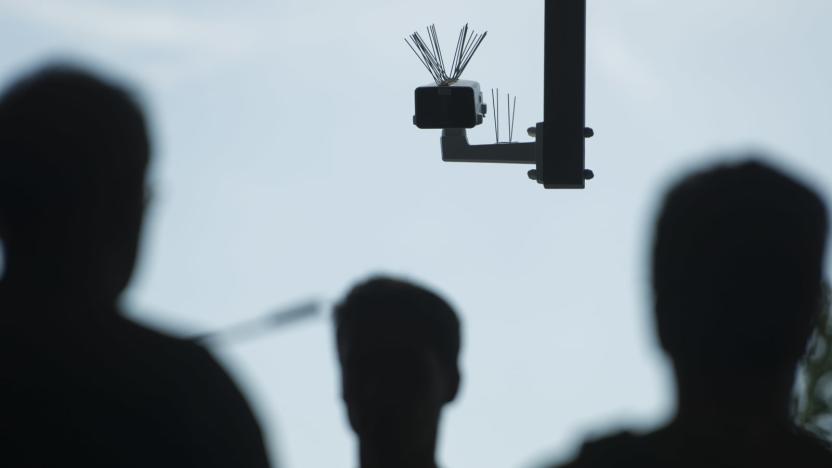
Amazon is selling facial recognition tech to law enforcement
If you're nervous about the privacy implications of Amazon's camera technology, there might be a good reason for it. The ACLU and a coalition of civil rights groups are calling on Amazon chief Jeff Bezos to stop offering Rekognition facial detection system to government customers after learning that the company is actively helping law enforcement implement the potentially invasive technology. Police in multiple regions have partnered with Amazon on surveillance projects, including an Orlando proof-of-concept that lets Amazon search for "people of interest" through city cameras as well a Washington County, Oregon initiative that lets officers scan people to see if they turn up in a mugshot database.

Mark Zuckerberg: Facebook doesn't use your mic for ad targeting
During today's joint hearing before the Senate Judiciary & Commerce Committees, CEO Mark Zuckerberg faced one question that addresses a privacy concern you've probably heard about: whether or not Facebook listens in on your conversations via microphones to display relevant ads. It's a conspiracy theory that won't die, but Zuckerberg fully denied it when asked by Senator Gary Peters (D-MI). Peters asked him to answer "yes or no" whether Facebook used audio from personal devices to fill out its ad data, and Zuckerberg said no. The CEO explained that users can upload videos with audio in them, but not the kind of background spying that you've probably heard people talk about. So are you satisfied, or are you still wrapping your phone in foil while discussing vacation plans, TV purchases or other advertising-rich topics?

Sophisticated malware attacks through routers
Security researchers at Kaspersky Lab have discovered what's likely to be another state-sponsored malware strain, and this one is more advanced than most. Nicknamed Slingshot, the code spies on PCs through a multi-layer attack that targets MikroTik routers. It first replaces a library file with a malicious version that downloads other malicious components, and then launches a clever two-pronged attack on the computers themselves. One, Canhadr, runs low-level kernel code that effectively gives the intruder free rein, including deep access to storage and memory; the other, GollumApp, focuses on the user level and includes code to coordinate efforts, manage the file system and keep the malware alive.

Cuba's 'sonic attacks' may have been a side-effect of spying
Remember those 'sonic attacks' against the American and Canadian embassies last summer, making staff queasy and raising all kinds of questions as to what happened? There might be an answer. University of Michigan researchers have theorized that the incidents were really the result of ultrasonic signals from poorly functioning surveillance equipment. While individual ultrasonic signals can't harm people outside of extreme circumstances, multiple signals can clash with each other and produce a sound that's just low enough to be audible.
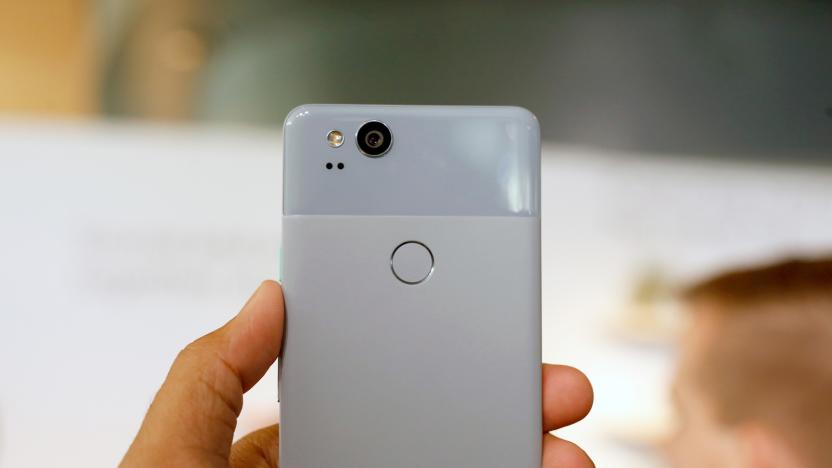
Android P will prevent apps from quietly hijacking your camera
The threat of someone hijacking your phone's camera to spy on you unawares is sometimes overstated, but it's definitely a possibility. Enough so, in fact, that Google is determined to do something about it. Recently discovered code submissions show that Android P should prevent idle apps from using both the camera and microphone. If an inactive program tries to use the camera, Android should shut it off and give you an error message. With the microphone, it's somewhat different: it'll allow recording but report empty data until the app is active. Malware wouldn't get away with recording in the background, but legitimate apps like a voice chat client (which stays active) shouldn't have an issue.
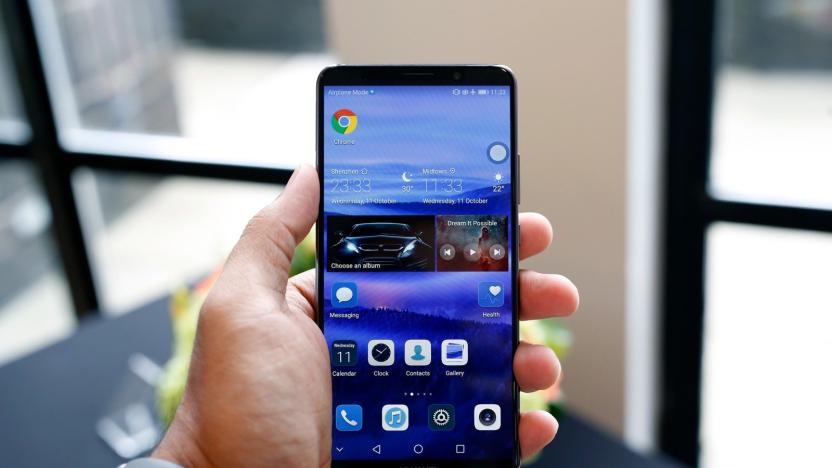
US Congress reportedly lobbied AT&T to dump Huawei smartphones
AT&T recently revealed that it wouldn't carry Huawei smartphones, despite rumors that it would be the first US carrier to do so, raising suspicions that politics played a part in its decision. Now, Reuters is also reporting that US lawmakers did indeed pressure AT&T to drop its plans to carry handsets from the Chinese company. Furthermore, Senators and House members are also pressuring AT&T to end its collaboration with Huawei on standards for its next-generation 5G network.

Malware creator charged for 13-year spying spree
You don't need an elaborate crime ring (or a government agency) to write malware that spies on others -- sometimes, just one person can be responsible. The US Department of Justice has charged Ohio resident Philip Durachinsky with 16 crimes for allegedly writing malware, nicknamed "Fruitfly," that gave him unfettered access to the PCs of "thousands" of individuals and institutions between 2003 and January 2017. Reportedly, he not only stole sensitive data to use for fraud and blackmail (such as logins, embarrassing chats and medical records) but took screenshots, logged keystrokes and spied on people through their webcams.





